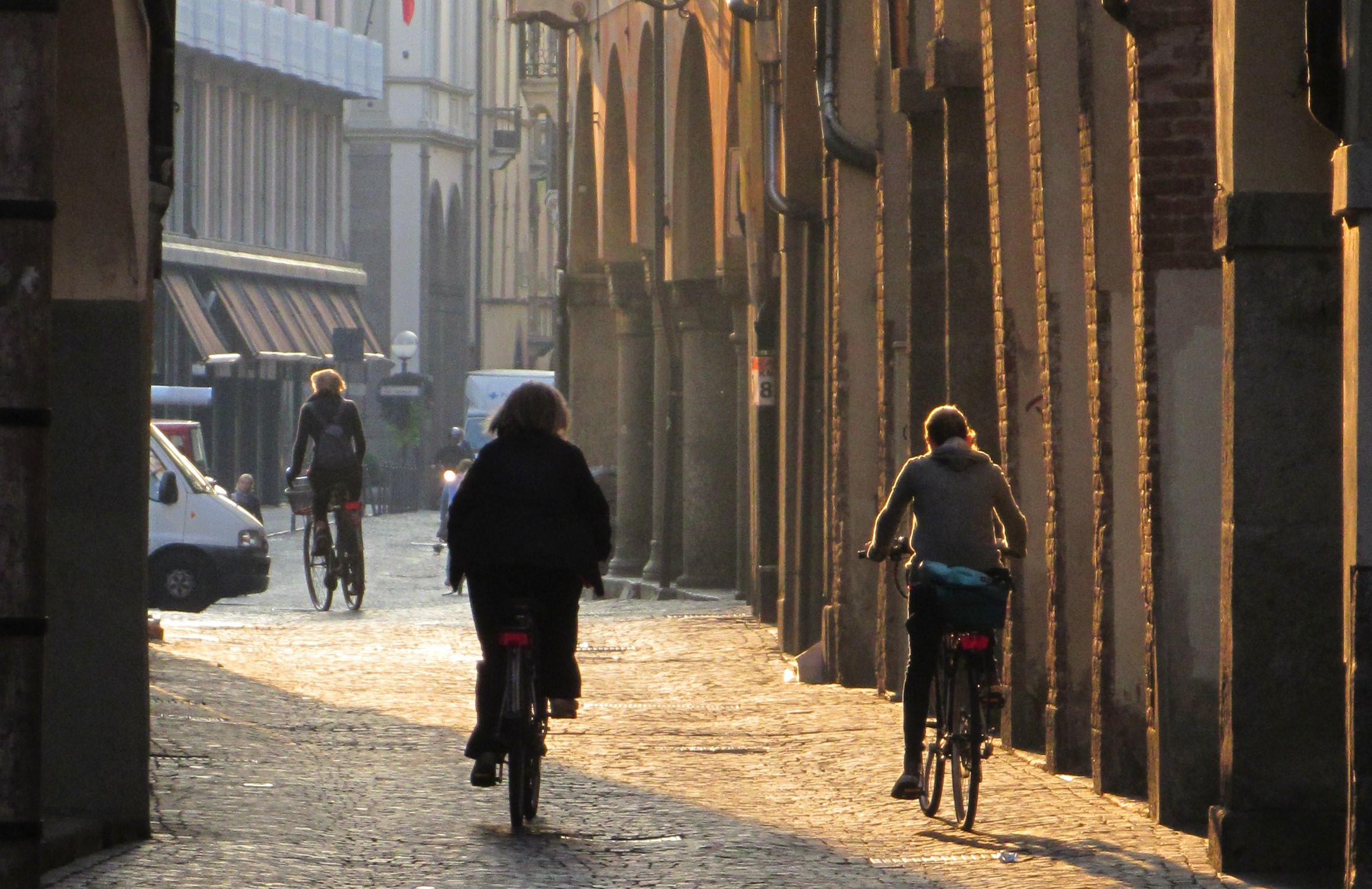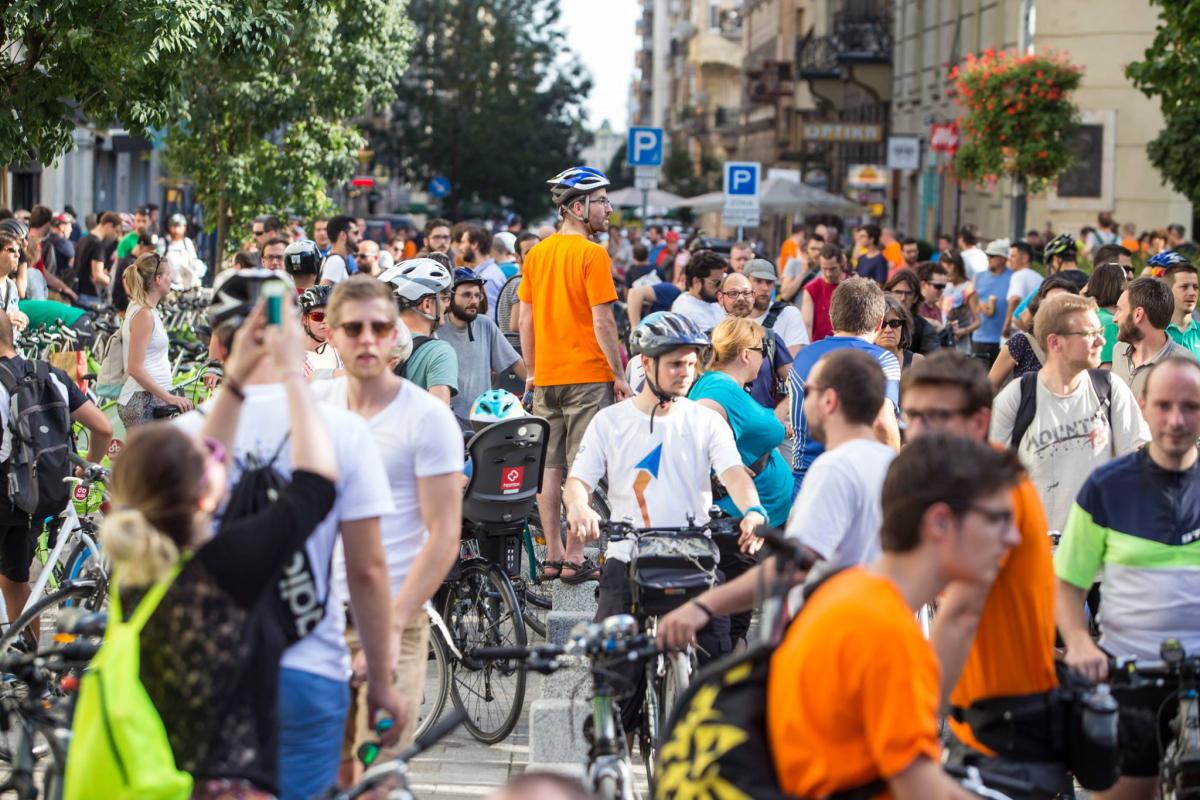
Shopping by bike: Cyclists and shop owners in European cities unite for liveable streets ‒ and increased revenues
Liveable cities are economically successful, and cyclists are good customers – more and more local businesses in Europe understand this link and work together with cycling advocates to improve conditions for active mobility.
This is also the case in Padova (Padua), a city in Northern Italy, where the mayor decided to prohibit cyclists to ride in the city centre on Saturday afternoons. The result was clear: Shop owners suffered a 50% loss in income during this time. Obviously, their local associations, representing more than 250 businesses, protested against this harmful decision, and called for their customers to be able to come by bike. They were supported by ECF’s Italian member FIAB Onlus. ECF Development Director Kevin Mayne, who has visited Padova several times already, said:
The case is striking. Every time I’ve visited Padova, I’ve found it a city with a strong culture and presence of cyclists, and I always use it as a good example at the international level. It’s clear to everyone that the economic centre of the city is built around the bike: Bikes make the commercial and recreational activities accessible to everyone, without polluting the environment. This puts Padova on a good path to become an internationally renowned cycling city, giving it the opportunity to stand alongside other undisputed leader cities like Copenhagen or Amsterdam. I was very surprised to hear that the local administration doesn’t recognise its own success in this sector, which actually should make it extremely proud. I think they should take better advantage of the city’s cycling spirit to promote its liveability even more.”
Kevin Mayne, ECF Development Director
 A similar protest was staged in Budapest. In the Hungarian capital, the mayor had decided to scrap plans to install cycle lanes on Bartók Béla Avenue, a busy street in the heart of the city, while the detailed engineering plans were already approved and included cycle lanes. ECF member Magyar Kerékpárosklub (Hungarian Cyclists Club) teamed up with local businesses to contest the decision, and managed to get over 1000 people to demonstrate for a more liveable street in July. More recently, they initiated a petition together with local entrepreneurs and associations of urban planners and landscape architects.
A similar protest was staged in Budapest. In the Hungarian capital, the mayor had decided to scrap plans to install cycle lanes on Bartók Béla Avenue, a busy street in the heart of the city, while the detailed engineering plans were already approved and included cycle lanes. ECF member Magyar Kerékpárosklub (Hungarian Cyclists Club) teamed up with local businesses to contest the decision, and managed to get over 1000 people to demonstrate for a more liveable street in July. More recently, they initiated a petition together with local entrepreneurs and associations of urban planners and landscape architects.
These coalitions between cyclists and local shop owners are based on economic facts: Cyclists are good customers, especially for shops in city centres. This has been shown by several studies, which you can find in our report on the local economic benefits of cycling.
News category:
Contact the author
Recent news!
Upcoming events
Contact Us
Avenue des Arts, 7-8
Postal address: Rue de la Charité, 22
1210 Brussels, Belgium









